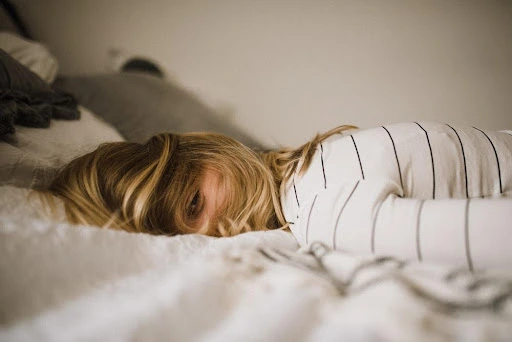Alleviating Insomnia with THC

THC vape pen is becoming more accepted in society, leading to its legalization in several countries. Knowing the evidence for cannabis’ efficacy as a sleep aid is crucial. It has shown promise in treating insomnia and reducing PTSD and anxiety-related nightmares. However, it’s important to weigh the advantages against any possible drawbacks before deciding whether or not to use it.
Insomnia: What Is It?
One of the sleep disorders is insomnia. It interferes with getting to sleep, staying asleep, and waking up at the proper time. Dealing with insomnia may be difficult, as could be expected. Lack of sleep for extended periods is harmful to health and may have negative consequences in many areas of life. Insomnia might manifest in two distinct ways:
- Acute insomnia may last anywhere from a few days to a couple of weeks. In many cases, the condition clears itself as the source of stress is removed
- Insomnia that lasts three months or more and occurs at least three times a week is considered chronic. There are a variety of possible reasons for chronic insomnia, making it more challenging to treat
Women, the elderly, and persons in stressful conditions including unemployment and financial insecurity are more prone to suffer from insomnia. A variety of medical issues may bring on insomnia, and its root cause isn’t always obvious.
The Therapeutic Properties of Cannabis
There are more than a hundred different cannabinoids in cannabis, but the two most well-known are tetrahydrocannabinol (THC) and cannabidiol (CBD). Both components pack a big punch, but they do so in different ways:
- THC
The main psychotropic component of cannabis is tetrahydrocannabinol (THC). THC is the active ingredient responsible for the high experienced by users. It is still unlawful to purchase THC-containing products without a valid prescription or medical marijuana card in the majority of states.
- CBD
In contrast, cannabidiol (CBD) is another psychotropic compound discovered in cannabis. It won’t make you feel high or intoxicated in any way. Using CBD products is the best way to get the benefits of the cannabis plant without dealing with any of the drawbacks. As long as the THC content of a CBD product is less than 03%, it may be sold legally in all but a handful of states.
THC: Does It Help You Sleep?
In some people, cannabis really helps them sleep better. Cannabis may aid in falling asleep, reducing nighttime awakenings and improving sleep quality for those who suffer from diseases including chronic pain, PTSD, and multiple sclerosis.You can look for how to make jolly rancher edibles.
A study of people with insomnia indicated that many of the participants claimed alleviation from their symptoms after taking cannabis. However, the results were mixed among these users.
How Does THC Affect Different Phases of Sleep?
The use of cannabis has been linked to altered sleep patterns and durations. Insomnia may find relief in THC’s ability to hasten sleep onset and lengthen periods of deep sleep. However, preliminary studies suggest that certain cannabinoids might shorten the duration of REM sleep, the period during which most dreaming takes place.
Problems falling asleep may be made worse by both heavy usage of cannabis and its withdrawal effects. Reduced capacity for emotional regulation and memory formation, as well as worse attention during wakefulness, have both been linked to reduced REM sleep duration. When you stop using cannabis regularly, you may find that your REM sleep cycles lengthen, leading to more vivid and frequent dreams.
Conclusion
Many individuals are interested in learning more about THC but are too shy to ask their doctor about it. Part of the reason for this is that the medical establishment has generally shrugged off the significance of this problem.
In order to stay abreast of their patients’ understanding of this topic, doctors are increasingly catching-up. Some individuals are already taking THC but are reluctant to discuss it with their physicians for fear of judgment.
